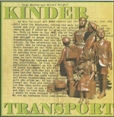Nearly two hundred years ago, Francis Scott Key penned the
lyrics of The Star-Spangled Banner, which was adopted as our National Anthem in
1931.
Although the first stanza is well-known to most Americans - and routinely
butchered by celebrity presenters at sporting events - you can pick up easy
money at almost any gathering of American citizenry by betting that nobody there
can recite the later quatrain that goes like this:
"Then conquer we must, when our cause it is just,
And this be our motto: 'In God is our trust.'
And the star-spangled banner in triumph shall wave,
O'er the land of the free and the home of the brave!"
Over recent years, the militant Nogodniks among us have succeeded in banning
audible prayer at public assemblies in this "heaven-rescued land" (phrase also
excerpted from the same anthem). I'm not aware whether the words quoted above
have ever been challenged by the ACLUneys and their ilkmates in thought, but I'm
sure they're dead set agin it.
Admittedly imbedded in our Constitution is a prohibition against the
establishment of an official national religion, a so-called "wall of separation"
between church (not God, mind you) and state.
This has been so torturously misinterpreted that God has become a no-no word and
a purported threat to the freedoms envisioned by our forefathers - as well as,
presumably, our foremothers.
Never mind, for purposes of this discussion, that the framers of our
Constitution were immersed in Theism no less thoroughly than were the earliest
Christians dunked in the Jordan.
Clearly they, the people who authored our guiding documents, wanted to avoid
force-feeding a state religion - like the Anglican Church in Olde England - on
the citizens of this brave new world.
Neither did they deny - nor, in fact, fail to proclaim repeatedly- that there
was a higher power (also mentioned as such elsewhere in Key's 1814 opus).
Those who now choose to deny the existence of God are sure as hell free to do
so, and equally free to exercise their unbelief without restriction, but so
should be the members of God's various squads - equal protection under the law
for believers and non-believers alike
It's hard for me to imagine how the deniers can whomp up a whole lot of
excitement in the naysaying process, but that's none of my business, nor is it
any skin off the "knows" of charismatic religionists.
It's equally difficult to discern why they get their skivvies and panties in a
bunch over a deity which they so vehemently maintain is non-existent and,
consequently, no more a threat to them than the Loch Ness monster and the bogey
men of their childhood nightmares.
I would think it much scarier to think that there is not a higher power, call it
what you will, than the poseurs, popinjays and poopheads who "run things" in
America, ranging from the District of Calumny to our puniest precincts of power.
At a minimum, it is comforting to believe, or maybe just hope, that there is a
world-to-come in which, as Dorothy sang on the road to Oz, "troubles melt like
lemon drops," where everybody gets along, where nobody lies or cries, where no
locks are needed, where nothing hurts or itches, and where the Boy Scout Oath is
the order of the days that have no nights.
What harm is there in dreaming of such a destination, or in trusting in a
benevolent figure who presides there? And what fun is there in denying such
beliefs and/or depriving others of the comfort it gives them?
Hey, if it turns out that there is no God, what harm is/was there in believing
or hoping otherwise?
If the Atheists are right, the believers will still have enjoyed the joys and
blessings of anticipation, of which the A-team will have deliberately deprived
itself - somewhat like sprinkling ice cream cones with red pepper.
And, in any event, what's the fun of or satisfaction in raining on the parade of
the hopeful or faithful flocks? Isn't it sorta-kinda like telling kids that
there ain't no Santa Claus?
And what, by the way, do you committed Atheists say to each other when one of
you sneezes? (Just kidding.)
So, lighten up, Nogodniks; the G-man (if, perchance, He does exist), loves you,
too - believe it or not!
And His promise of a life after death not only beats the alternative, but makes
life BEFORE death a lot more tolerable.




 Bottom
Bottom













 Printer
friendly page
Printer
friendly page